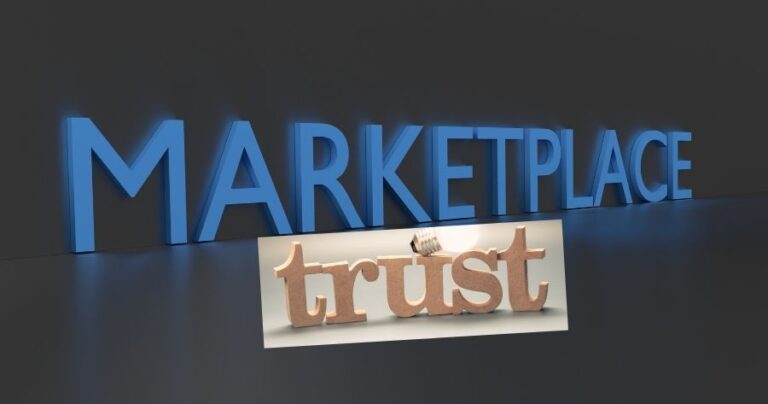
Best Online Marketplaces for Buying and Selling in 2025
In 2025, the world of e-commerce continues to thrive, with online marketplaces becoming more essential than ever for both buyers and sellers. Whether you are a small business owner looking to expand your customer base or a consumer searching for the best deals, choosing the right online marketplace can make all the difference.

This article explores the top 10 best online marketplaces for buying and selling in 2025, offering detailed insights on why these platforms are leading the pack. Each of these platforms boasts robust tools, user trust, and expansive reach—critical factors for anyone wanting to grow in the digital marketplace economy.
1. Amazon – The Global Giant
Website: www.amazon.com
Best for: Mass-market products, global reach, brand trust.
Amazon remains the undisputed leader in online marketplaces in 2025. With over 300 million active users, powerful seller tools, international logistics, and Fulfillment by Amazon (FBA), it is the go-to choice for sellers aiming for massive exposure. Buyers trust Amazon for its quick delivery, competitive pricing, and user reviews.
Pros for sellers:
- Massive audience
- Advanced logistics
- Brand credibility
- Global reach
Cons:
- High competition
- Seller fees can be significant
2. eBay – Ideal for Unique and Secondhand Items
Website: www.ebay.com
Best for: Auctions, used goods, rare collectibles
eBay continues to thrive as a versatile marketplace for both new and pre-owned goods. With options for auctions or “Buy It Now,” sellers have the flexibility to reach niche audiences.
Buyers searching for rare items, vintage goods, or deals often find eBay as the perfect destination. Sellers benefit from lower fees compared to Amazon and have more control over their listings.
Pros:
- Great for secondhand and unique products
- Lower seller fees
- Strong buyer protection
Cons:
- Limited brand control
- Somewhat dated interface
3. Etsy – Handmade, Vintage, and Creative Products
Website: www.etsy.com
Best for: Handmade items, art, crafts, vintage goods
In 2025, Etsy remains the leading platform for creatives. Artists, crafters, and vintage collectors use Etsy to reach customers who value uniqueness and craftsmanship.
Pros:
- Targeted audience
- Low cost to start
- Seller-friendly interface
Cons:
- Limited categories
- Transaction and listing fees
4. Facebook Marketplace – Local and Social Commerce
Website: Access via Facebook App or facebook.com/marketplace
Best for: Local selling, used goods, quick cash
Facebook Marketplace is growing rapidly in 2025, especially for local transactions. Sellers enjoy no listing fees and easy communication with buyers. Integration with Facebook Shops also allows businesses to scale with added advertising options.
Pros:
- Zero listing fees
- High user engagement
- Easy communication via Messenger
Cons:
- Limited payment protection
- Mainly for local sales
5. Walmart Marketplace – Competing with Amazon
Website: www.walmart.com
Best for: General merchandise, U.S.-based sellers
Walmart has been steadily growing its third-party marketplace, offering sellers access to its vast customer base without the overwhelming competition of Amazon.
If you’re based in the U.S. and want to list products in a trusted retail environment, Walmart offers a solid opportunity in 2025, particularly with its new AI-powered inventory tools
Pros:
- Trusted U.S. brand
- Less competition than Amazon
- Omnichannel integration
Cons:
- Strict approval process
- Only for U.S.-based sellers
6. Shopify – Build Your Own Marketplace
Website: www.shopify.com
Best for: Business owners who want full control
Although not a traditional marketplace, Shopify allows entrepreneurs to create their own e-commerce websites. Shopify’s app integrations and marketing tools make it a popular option in 2025 for businesses that want branding freedom.
Pros:
- Full control over design and branding
- Great SEO tools
- Scalable
Cons:
- Requires marketing efforts to drive traffic
- Monthly subscription fee
7. AliExpress – Drop shipping Friendly
Website: www.aliexpress.com
Best for: Drop shipping, low-cost international goods
AliExpress is the go-to platform for buyers looking for affordable international products and for drop shippers sourcing items. In 2025, AliExpress has improved its delivery times, making it more appealing to global buyers.
Pros:
- Cheap sourcing for sellers
- Large variety of products
- Integration with dropshipping tools
Cons:
- Long shipping times (outside China)
- Inconsistent product quality
8. Jumia – Africa’s Leading Online Marketplace
Website: www.jumia.com
Best for: Buyers and sellers in Nigeria, Kenya, Ghana, Egypt
Jumia is dominating the African e-commerce space. With a strong logistic network and growing trust among African consumers, Jumia is ideal for sellers looking to tap into the African market.
Pros:
- African-based marketplace
- COD (Cash on Delivery) available
- Marketing and logistics support
Cons:
- Limited global reach
- Competition with informal markets
9. Poshmark – Fashion and Lifestyle Niche
Website: www.poshmark.com
Best for: Fashion, beauty, and lifestyle sellers
Poshmark has grown beyond just a fashion resale app into a social-driven marketplace for lifestyle products. Sellers benefit from an active community and easy mobile-first selling.
Pros:
- Strong niche audience
- Social selling features
- No upfront fees
Cons:
- Higher commission (up to 20%)
- Limited product categories
10. Mercari – The Simplified Selling App
Website: www.mercari.com
Best for: Casual sellers, secondhand items
Mercari is often called the “easy eBay” for its simple listing process and mobile-friendly experience. It’s growing fast in 2025, particularly in the U.S.
Pros:
- Simple and user-friendly
- Low listing effort
- Secure payment system
Cons:
- Limited international support
- Lower buyer traffic than Amazon/eBay
Conclusion
Choosing the right online marketplace in 2025 depends on what you’re selling and who you’re targeting.
As e-commerce continues to evolve, these marketplaces will play a major role in the future of online buying and selling. If you’re starting a business or just looking to make extra income online, listing your products on one or more of these platforms is a smart move.





